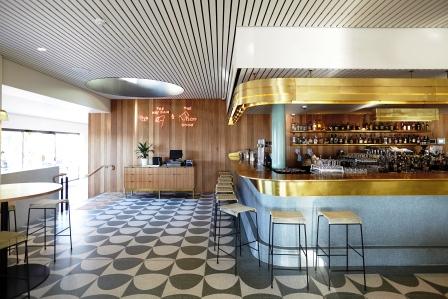With the Supreme Court of WA dismissing noise nuisance complaints against the Raffles Hotel in Perth, Australian Hotelier talks to the lawyer who successfully defended the hotel in court to discover what hoteliers across the country can learn from it – to avoid litigation in the first place and also how to respond to any case that arises.
Jessica Patterson is Partner at Lavan, the law firm that represented the licensee of the Raffles Hotel, Colonial Leisure Group Pty Ltd. While the case can still go to appeal, there are clear learnings to highlight now.
“Publicans/hoteliers can take some comfort that given the right set of circumstances they may potentially be able to succeed in a noise-based nuisance action against them,” Patterson told AH.
“However, publicans/hoteliers cannot be complacent about noise complaints. The Raffles case confirms the need to address and properly manage noise issues. There is a need to balance the interests of all concerned – residents, patrons and others. The history of a particular premises, the factors relating to the particular site and surrounding ambient noise are likely to be highly relevant in any given case.”
The case related to noise complaints from a neighbour of the hotel over a period of time.
Some of the key points that affected the outcome, according to Patterson, include the following (‘before the fact’):
- The fact the hotel was already in existence and operating at the time the resident moved to his nearby apartment. A hotel had operated at the site since 1896.
- The strata by-laws applicable to both the Raffles and the resident expressly provided for the operation of the hotel.
- The site and the surrounding area has a high level of ambient noise.
- The Raffles has made changes to its business to address noise complaints and noise had reduced.
- The interference of noise experienced by the resident was not found to be substantial or unreasonable.
- The Raffles was found to be currently operating in a manner consistent with good management of such a venue.
“Even a most obliging and diligent publican/hotelier may not be able to avoid a nuisance claim,” says Patterson.
“It is impossible to totally prevent people making claims against a licensee. However, publicans/hoteliers can take steps to minimise the risk and to best place themselves to defend a claim should they need to.”
To try to hopefully avoid nuisance claims, Patterson recommends publicans/hoteliers do the following:
- Not ignore noise complaints.
- Respond to complainants and seek to address the noise complained of.
- Maintain an open line of communication with residents (and others who may be involved in the noise complaint). Keep them informed of what is being done to address the issues.
- Not ignore correspondence from the local council about noise issues. Respond and seek to address the noise.
- Take meaningful steps to reduce noise emissions, such as the following, which was done at the Raffles and referred to by the Court in its decision:
- Re-locating the position of DJs
- Removing or re-directing some speakers
- Limiting the hours when DJs perform
- Installing automated closing doors
- Additional security to monitor noise emissions
- Implementing a noise management plan
- Sound system limitations
“It may be necessary to engage an acoustic expert early on,” Patterson says.
“Publicans/hoteliers should also keep thorough records of noise complaints and what is done in response to them, in case those records are needed in the defence of an action. This may include staff and management making notes of dates, times and the content of discussions with residents or others relating to the noise issues. It can sometimes be very difficult to piece together the history well after it has occurred if there are no proper records.
“In the case of new mixed-use precinct developments involving hotels/taverns, ideally the residents and other businesses in the precinct should be given clear notice in advance of the hotel/tavern to be operating there.”
Three things to do/not do when faced with noise nuisance litigation (after the fact):
- Do not ignore the situation. Publicans/hoteliers should notify their lawyers immediately upon receiving notice of the action and preferably sooner if legal action seems like a possibility.
- Collate all records relating to the issues referred to in the nuisance litigation.
- Avoid doing anything that might potentially jeopardise the case, such as speaking to the complainant or the media without prior legal advice.

